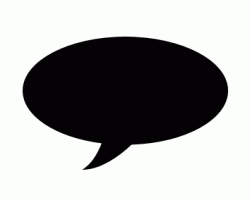 Five years ago this week, I launched Smooth Harold. Coolest blog evar! Since its launch, if one thing has changed the site more than anything else, it’s been Facebook.
Five years ago this week, I launched Smooth Harold. Coolest blog evar! Since its launch, if one thing has changed the site more than anything else, it’s been Facebook.
A quick glance at my front page reveals that not many people comment like they used to, even though traffic levels have remained the same. Since my blog is syndicated to my Facebook account, many readers prefer to comment there instead of here.
(Admittedly, I don’t post as much content as I used to, since Facebook is a superior way of bookmark sharing and pithy status updates.)
But maybe it isn’t just Facebook or Twitter that’s changed where people communicate online. Maybe the interest in the comment has waned. I remember when posting a comment was pretty fun. It was empowering. Now it’s almost blasé. And it’s annoying to skim through so many trolling comments. So commenting on Facebook, among trusted friends and family, ensures you don’t have to deal with the latter.
At the same time, I can recall numerous occasions where a complete stranger left an inspiring comment on my blog, something Facebook can’t offer (although Twitter can). So perhaps online commenting has become more insular, less democratic. At least on a personal level.
Or maybe it’s just me. Maybe I’m out of touch. (Is this thing on?)
In preparing for this story, I asked a friend who uses the internet much less than I do some questions. I couldn’t help but chuckle when I read the following addendum to his answers:
Things I hate about online people:
- Everyone thinks they are an expert or critic.
- People become increasingly aggressive when shielded by the blanket of anonymity online.
- Online folks are much more interesting within the confines of their computer than they are in real life.
As a professional blogger for nearly two years now, I’ve seen tens of thousands of comments aimed at me. Most of them are favorable, a lot of them are entertaining, some of them are negative, and a handful of them are just nasty. It comes with the territory when you publish your opinions, passions, and stories freely to the web.
But nasty commenters have a bright side. They help motivate me to work harder and make it so my output has to do the convincing. They give me thick skin and chutzpah to take risks as both a writer and businessman.
Continue reading…
I don’t like moderating comment criticism on blogs. Granted, moderation is good for some large organizations or companies that need to be especially careful with what’s posted on their site, but for independent publishers, I like the added democracy of an open comment system. And for the most part, blog readers have come to appreciate that comments do not express the views of the posting site or its author.
Moderation, either before-the-fact or after-the-fact gives the independent publisher the power to masque criticism, ideas, thoughts, new views, differing opinions, open-mindedness, vulgarity, and hate speech. I’m not sure I want that power, though I do use it in the case of the last two. I have let a little hate speech slide but don’t really like to. I prefer after-the-fact moderation (once a comment is already posted) because it’s easier for me to let comments “stick” if they aren’t too racy. The extreme one’s (through rare on Smooth Harold) get thrown out once I spot them in my email inbox.
Continue reading…
 Five years ago this week, I launched Smooth Harold. Coolest blog evar! Since its launch, if one thing has changed the site more than anything else, it’s been Facebook.
Five years ago this week, I launched Smooth Harold. Coolest blog evar! Since its launch, if one thing has changed the site more than anything else, it’s been Facebook.